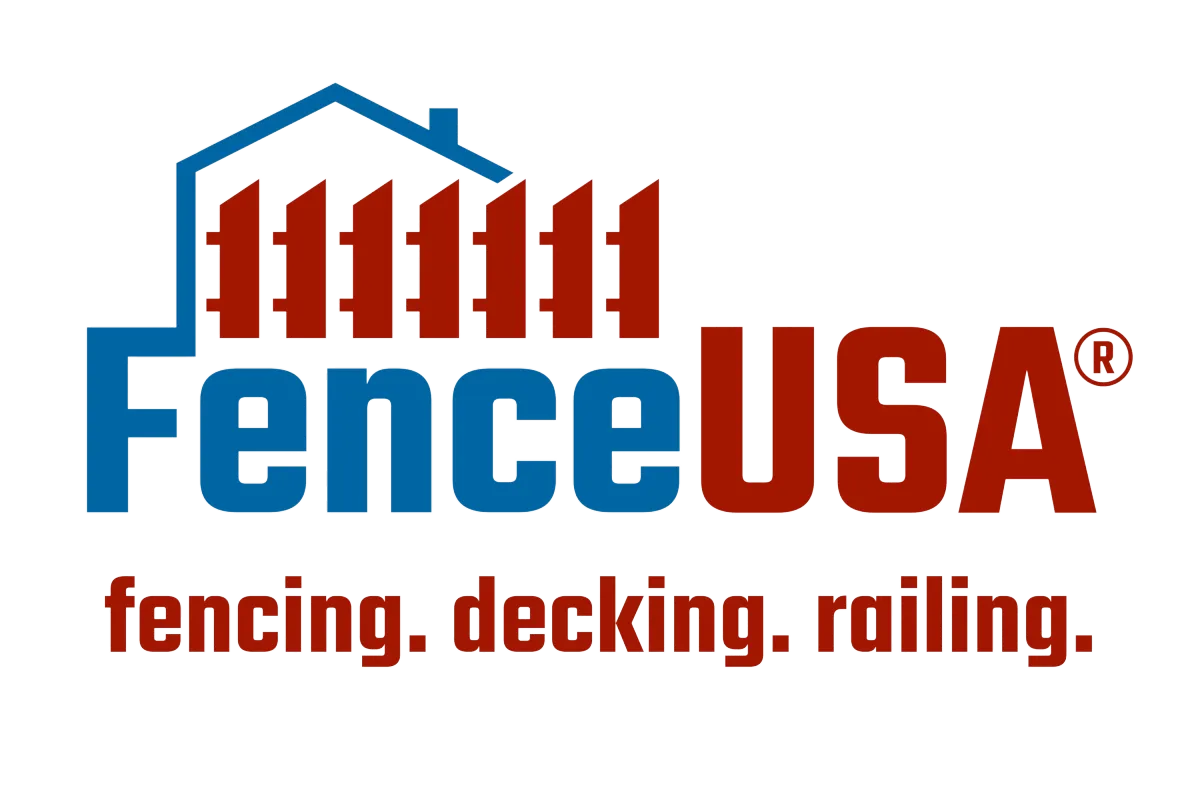The Tri-State Area's First And Only Full Service Fence, Deck, And Railing Installation Solution.
45+ years of quality and reliable Fencing, Decking, and Railing installations in the Tri-State Area.
SCHEDULE YOUR FREE ESTIMATE TODAY!

The Fence USA Story
When we were first founded as Amechi Fence over 45+ years ago, we set out to provide the best fences at the best value for our customers. Over the years, we have refined our approach as the top fence suppliers, manufacturers, and installers in Turnersville, NJ, and continued to provide our customers with that same top quality. We take pride in serving the greater South New Jersey community and will continue to do so as FenceUSA.
Headquartered in Turnersville, NJ, our professional fence installers have provided our customers with the best fences and values for years. We work with our customers to transform their yards with the fence styles of their choice while offering a renewed peace of mind knowing that their children and pets are safe and secure. Contact our team to get your free quote and schedule your first appointment today!
Our Services
How Can We Assist You Today?
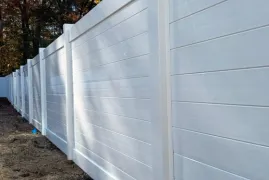
Fencing
Install & Repair
FenceUSA offers a huge variety of fencing options in many styles and colors.
Vinyl
Aluminum
Wood
Chain-link
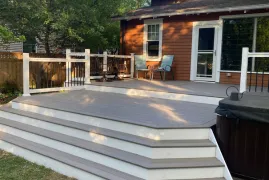
Decking
Install & Repair
FenceUSA offers a wide variety of decking options in many styles and colors.
Composite
PVC
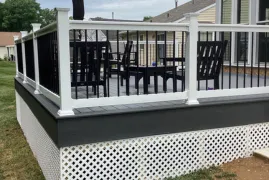
Railing
Install & Repair
FenceUSA offers a wide variety of decking options in many styles and colors.
PVC
Aluminum
Cable
Glass
Areas
We Service
FenceUSA's professional fence installers based in Turnersville, NJ, have helped countless homeowners find the solutions to their fencing needs for over 45+ years. Our privacy fence and gate installers have worked throughout New Jersey, Pennsylvania, and Delaware to provide our customers with the best fencing quality and value. We've helped homeowners throughout South Jersey and the following areas:
Atlantic County, NJ
Burlington County, NJ
Camden County, NJ
Cape May County, NJ
Cumberland County, NJ
Delaware County, PA
Gloucester County, NJ
New Castle County, DE
Ocean County, NJ
Salem County, NJ
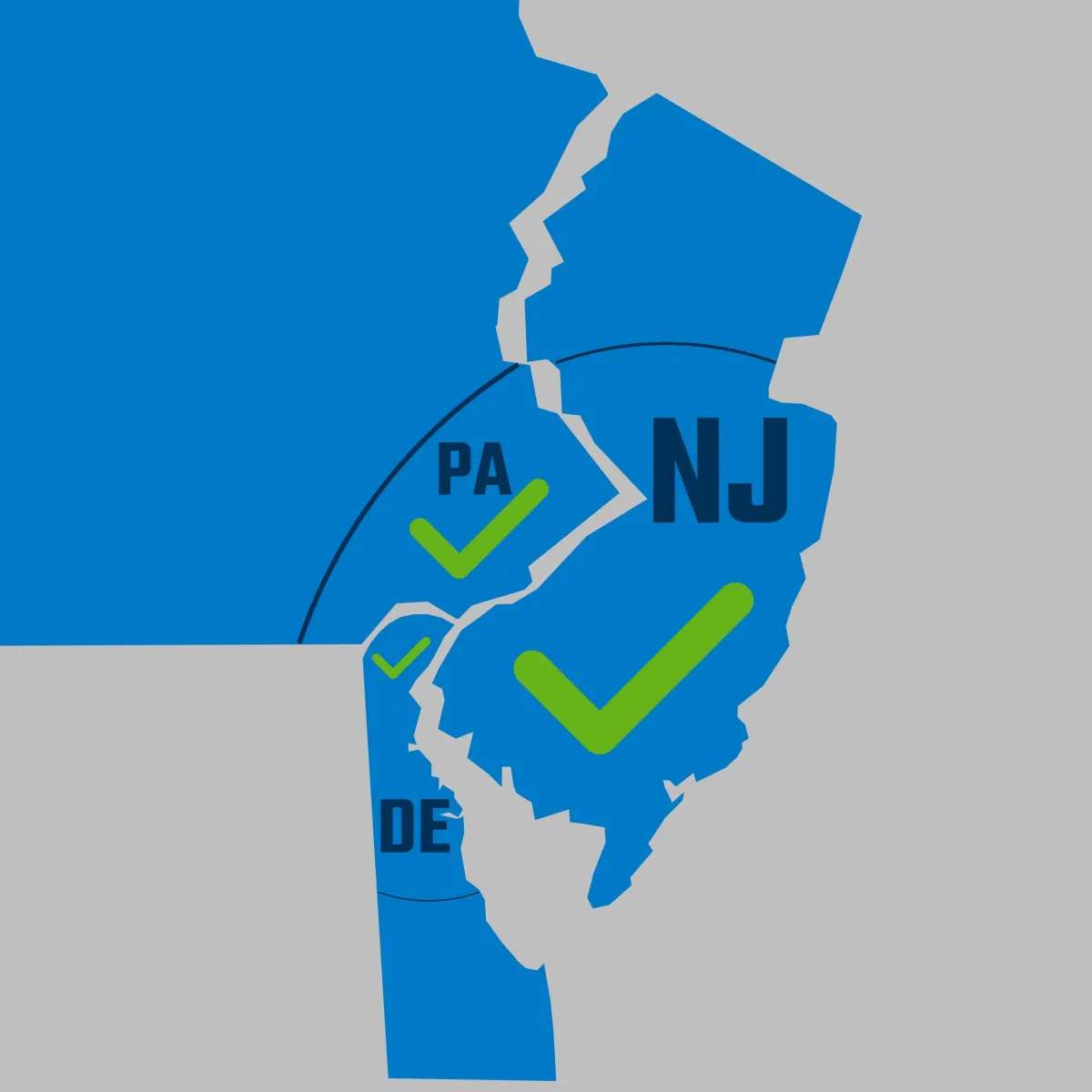
Our Work
What Our Customers Are Saying...
Meet Our Team Of Professionals
The FenceUSA team of professionals are equipped to bring your vision to life. They aim to give you the best value money can buy and will be by your side from start to finish ensuring every installation is handled with care providing superior service to our customers throughout New Jersey, Pennsylvania, and Delaware!
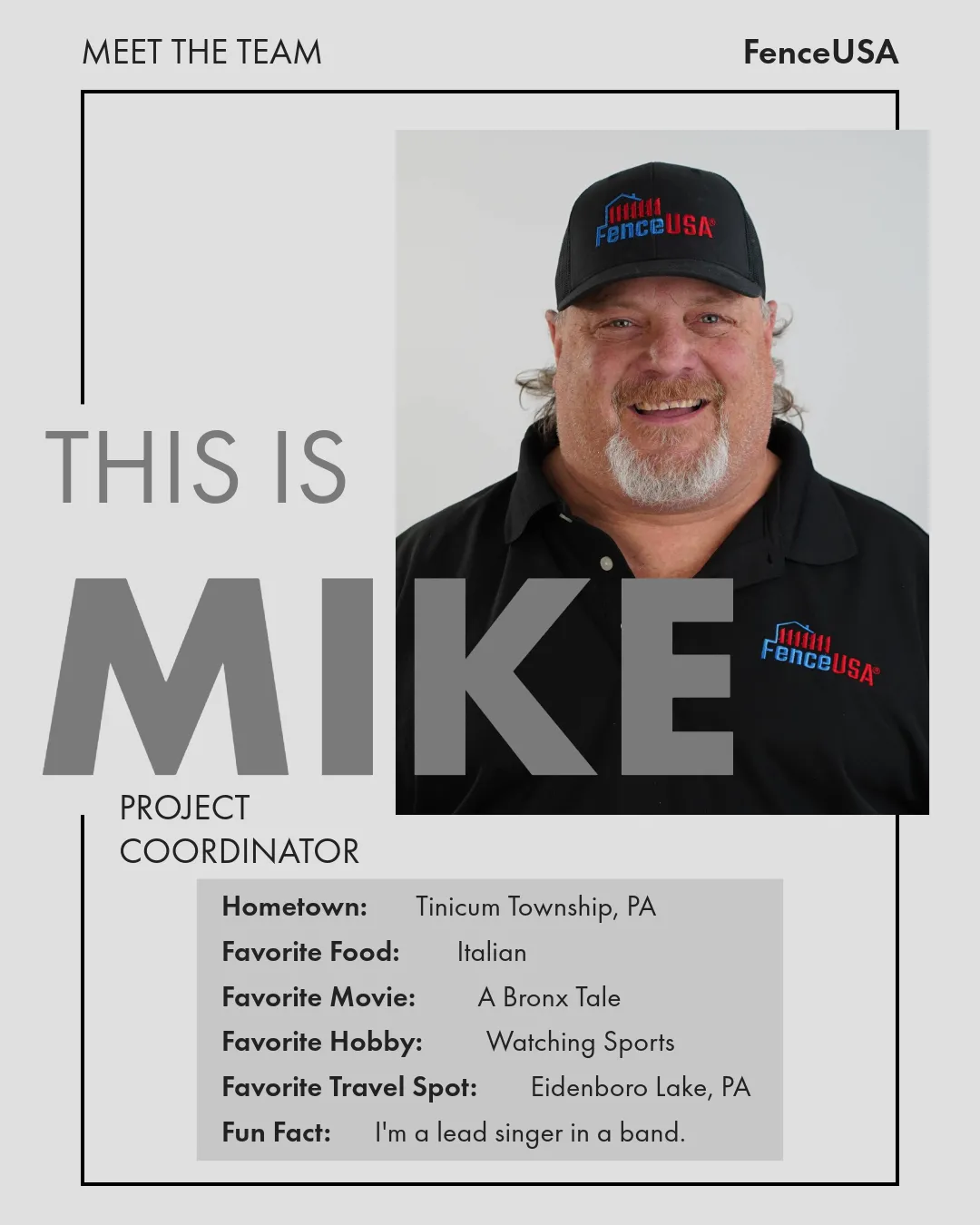
Mike Patterson
Project Coordinator
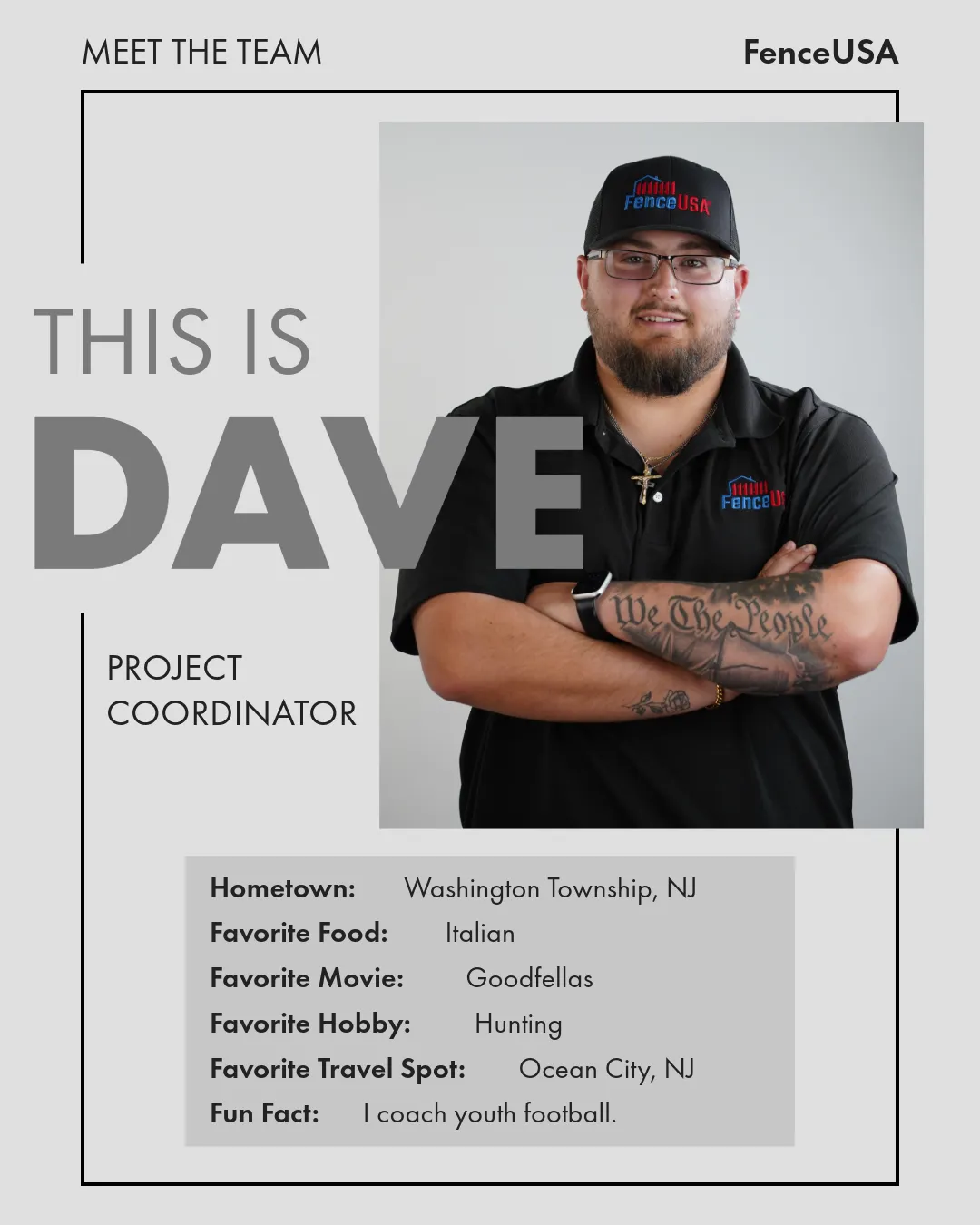
Dave Rosenberg
Project Coordinator

Anthony Coppola
Project Coordinator
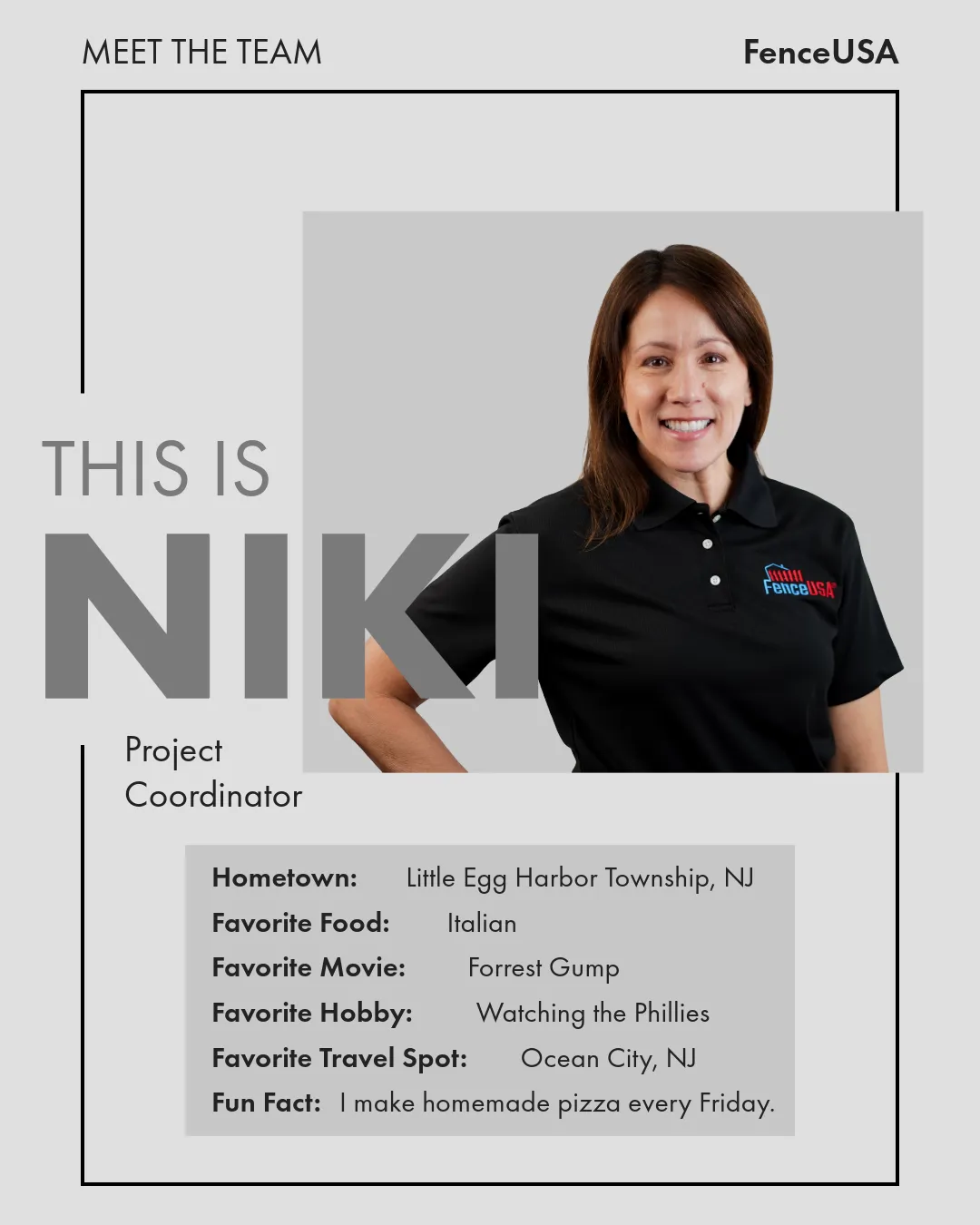
Niki Collins
Project Coordinator
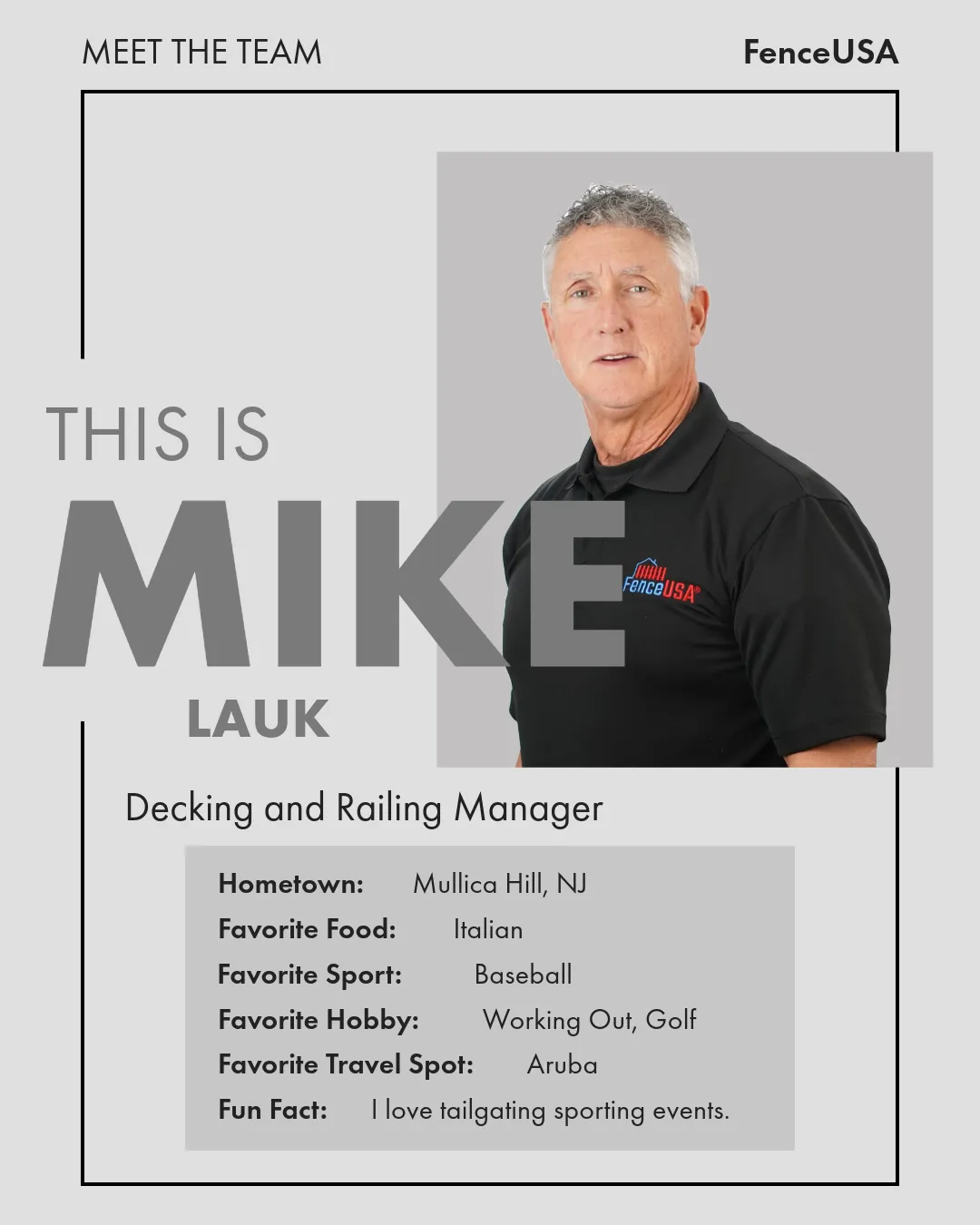
Mike Lauk
Decking and Railing Manager
Fencing, Decking, and Railing Installation and Repair
Servicing NEW JERSEY, PENNSYLVANIA, and DELAWARE!
FAQ
Commonly Asked Questions
Trust our team for quality, professional work. Each project coordinator is fully equipped to answer all of your questions and provide you with top-tier customer service to ensure that your job gets done the right way!
Do You Handle Permits?
Yes, we handle the permit process. The permit process can often present homeowners with unwanted challenges. That is why we take care of all of it for you to make your life easier throughout the entire process.
Does My Purchase Come With A Warranty?
Yes, your purchase comes with a 2 year install warranty and a lifetime material warranty.
How Long Will My Job Take?
To maintain transparency we make instruct our clients that every job is unique. Jobs are fulfilled as fast as possible and we are dedicated to keeping you updated every step of the way. Job install times are also dictated based off the time of year
Where Are Your Products Made?
All of our products are proudly made in the USA!
What Other Services Do You Offer?
Fence USA is proud to offer decking and railing solutions for all homeowners!
Address
5950 NJ-42, Turnersville, NJ 08012
Contact
(866) 639-7599
LICENSE #:
13VH0456N9700
Hours Of Operation
M-F: 9AM-5PM
Saturday: Closed
Sunday: Closed
© 2024 FenceUSA. All rights reserved.
Privacy Policy
Terms of Use
